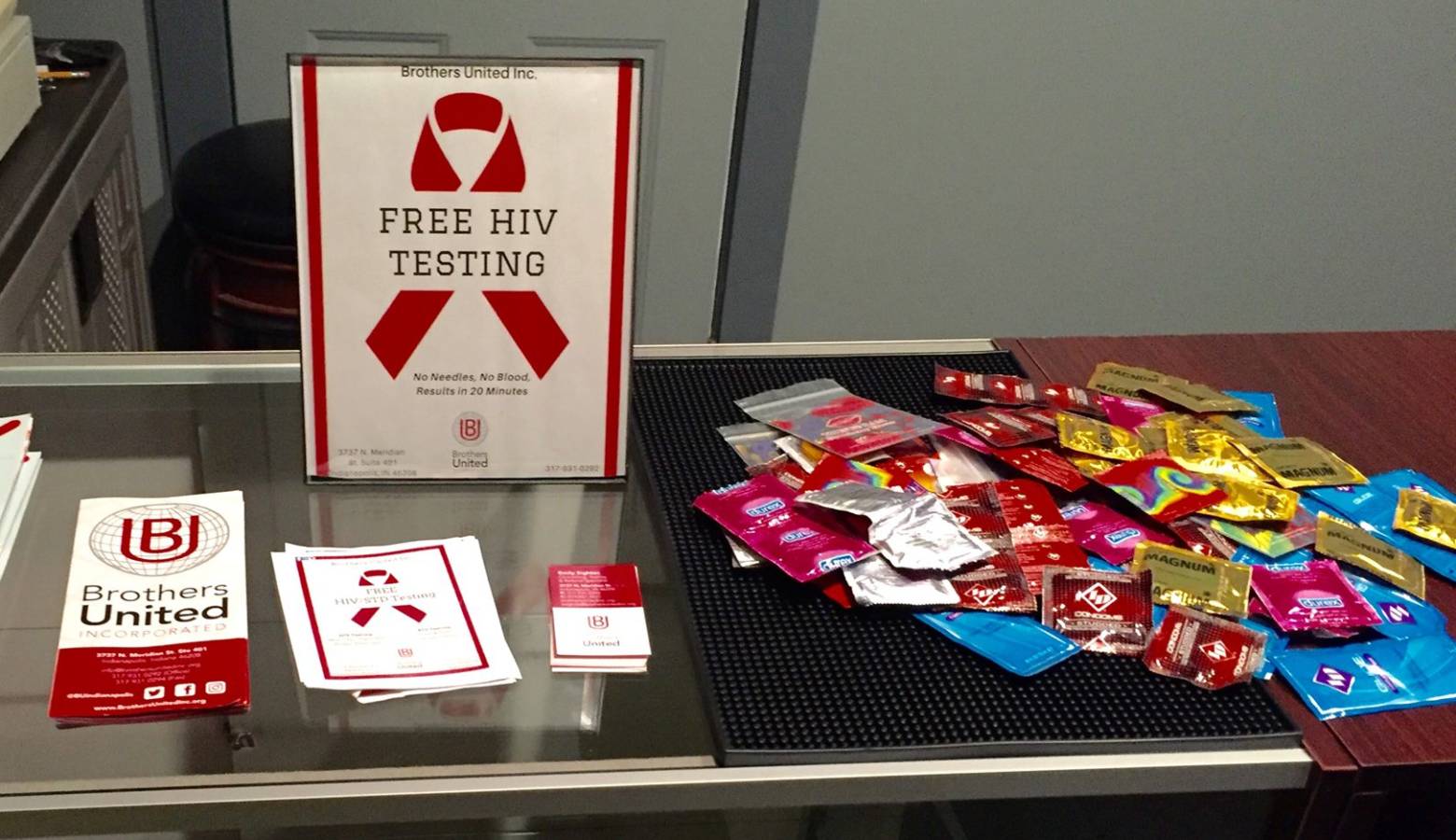Testing On The Dance Floor: Giving HIV Help To Communities Where They Congregate

While HIV transmission rates have decreased across the board, they are disproportionately high for black gay and bisexual men. Yet little prevention funding is directed toward this population, As Side Effects Public Media’s Emily Forman reports, grassroots organizations are reaching out in creative ways, in places where the community meets up.
For decades, ballroom culture has been an anchor for LGBTQ black and Latinx communities everywhere. At each ball, contestants either strut or dance their way down a catwalk, showing off their moves – spinning, duck walking, corkscrew dipping down to the floor and popping back up. Some dress in drag. Some dress in a polo shirt and baseball cap. It is an athletic sight to see.
Ronson Rowley was 19 when he first found a home in the ballroom scene.
“When I came out to my mother it was like a hard time between me and her, um so it was like when I was at home I couldn’t be myself. So that was my way to go and be around other people like me and express myself and be just as gay as I wanted to be, and then I come home and you know and transform back into this son that my mother wanted me to be.”
The Red Ribbon Rumble is a ball that happens every first Friday of the month in Indianapolis. The party gets going just before midnight at a rec center.
At the ball Rowley goes by Ronson Balenciaga, inspired by the luxury shoe designer. His event is runway. When the MC calls his name, Ronson struts up and down the floor in a black t-shirt and jeans. In the past he’s worn S&M and haute couture-inspired looks. Like a bird-cage headpiece, fishnets, and a whip.
He’s not here just to walk. He’s here to teach people about HIV. Rowley’s an ambassador for a group called Brothers United that works on HIV and STD prevention. And he was chosen because the ballroom community look up to him.
“Being in the community and knowing like… like a person will tell me hey I’m positive… and you know how can I get help with this… and I’m like in my head I’m thinking like oh my god you’re only like 15 or 16.”
Black gay and bisexual men are the group most likely to get HIV. The CDC projects that half will get it in their lifetime–unless prevention efforts are stepped up. Most funding for HIV prevention goes toward the straight population and injection drug users, leaving grassroots organizations to try and reach black gay and bi men.
At every ball, Brothers United offers free testing. A few people get their cheeks swabbed to test for HIV. Some get blood drawn to test for STDs.
Brothers United also trains ballroom ambassadors like Rowley to share information about good HIV prevention.
“We already have names in the ballroom and so a lot of them respect us and look up to us so they’re like ‘OK, so if Ronson is in the process of getting PrEP then maybe I should do that too.'”
A big part of what Rowley talks to people about is PrEP, the HIV prevention drug. Black men account for just 10 percent of PrEP prescriptions, even though they have highest HIV risk.
Of the handful of people that got tested tonight, one tested positive, and now has an opportunity to get treatment. Because he found out his status among people that understand.
